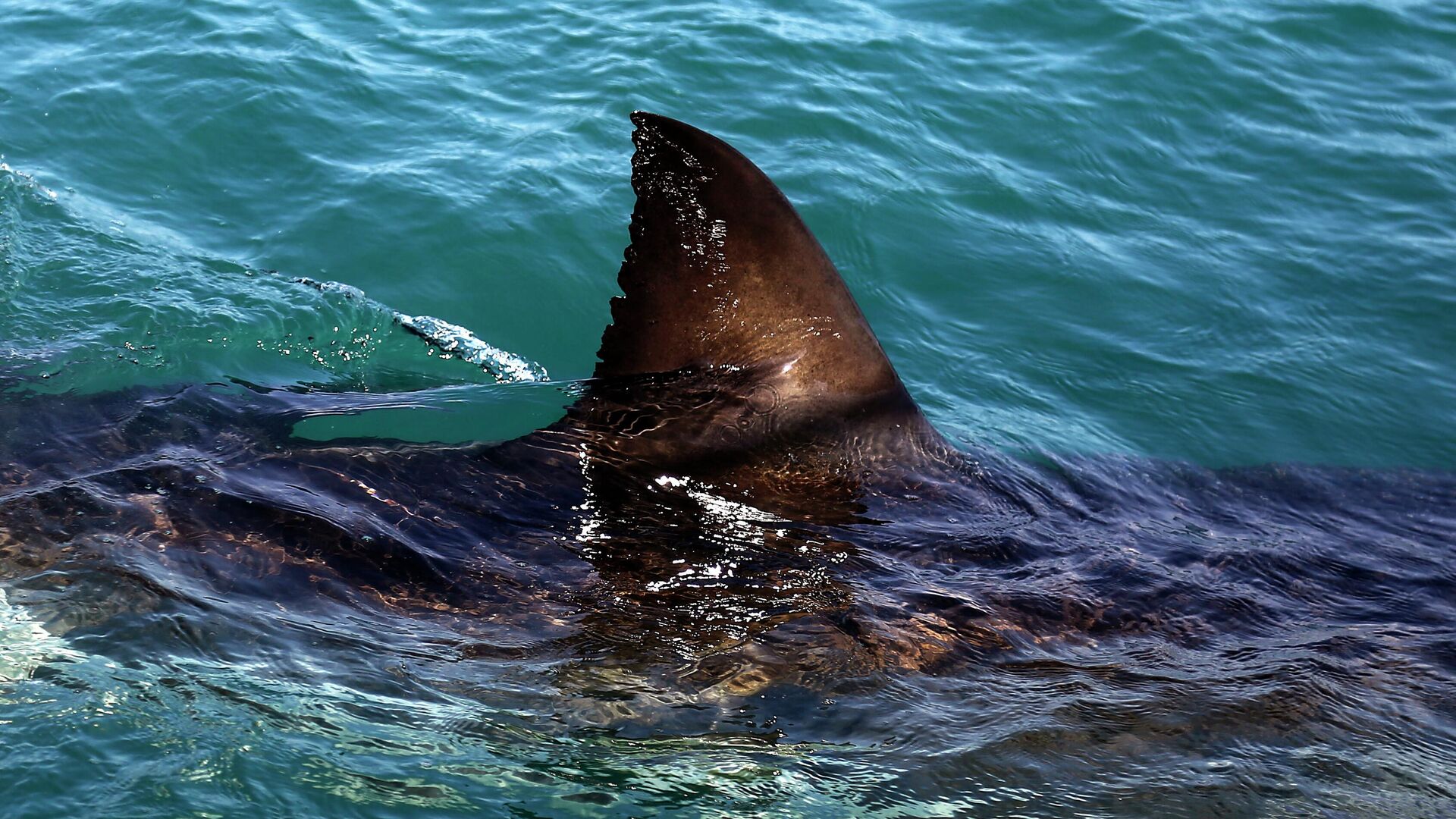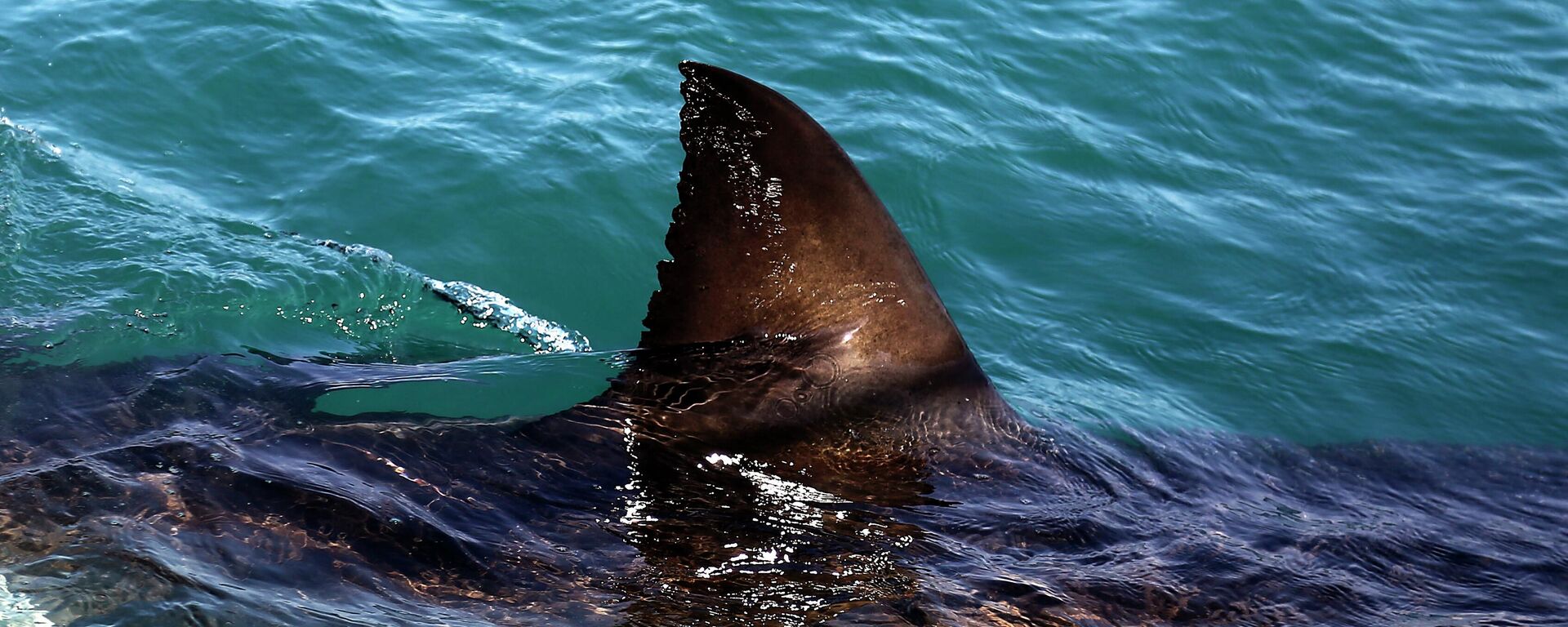13-Foot-Long Great White Shark Tracked Off Shore of Myrtle Beach
21:06 GMT 05.08.2022 (Updated: 13:32 GMT 06.08.2022)

© AP Photo / Schalk van Zuydam
Subscribe
The 1,437 pound shark named “Breton” is 13 feet long and was tracked just off the shore of Myrtle Beach, South Carolina, after first being tagged near Nova Scotia in 2020. The enormous adult male shark was picked up by a non-profit shark locator called OCEARCH.
Mature male #whiteshark Breton, who was 13ft long & weighed 1,437lbs at the time of tagging, just pinged in approximately 60 miles offshore near #MyrtleBeach, SC. After spending his June and July off of Florida, has he finally started his journey north? #FactsOverFear #sharks pic.twitter.com/qlx9akfP1h
— OCEARCH (@OCEARCH) August 2, 2022
The data organization also tracked Breton near Florida about two months ago. Researchers are shocked to learn that, despite the shark’s massive weight, he is able to travel long distances in a short amount of time. Sharks are able to travel at faster speeds, explains OCEARCH, because their skeletons are made of mineralized cartilage as opposed to bone.
"Breton is somewhat of an anomaly. While the rest of our actively pinging white sharks are off the Northeast United States or Atlantic Canada, Breton remains in the warm waters off the Southeast US," OCEARCH said on its Twitter account. "This is the latest we’ve seen one of our white sharks stay this far south in the Western North Atlantic. Typically we notice our white sharks start their migration north from mid-May to June."
Breton is not the largest shark to be spotted off the coast of Myrtle Beach, either. Roughly 10 years ago, a Myrtle Beach resident saw a 3,400-pound great white shark about 16 feet long.
OCEARCH announced on their Twitter that they would be tracking Breton’s movements to see if he’ll eventually make his way out of warmer waters, with most great whites being found in surface temperatures from 59°F to 72°F. With climate change warming up ocean temperatures, many great whites are searching for colder waters, meaning they will be headed to the north, to areas where they are not usually found.
“Nature has many ways to tell us the status quo is being disrupted, but it’s up to us to listen,” said Dr. Kyle Van Houtan, Monterey Bay Aquarium’s Chief Scientist, who did a study on white sharks’ thermal habitats. “These sharks – by venturing into territory where they have not historically been found – are telling us how the ocean is being affected by climate change.”
The state of Maine, for instance, has been seeing an increase in great white sharks, with at least six sightings reported in the year 2020 alone, and the first fatal shark attack that year in 10 years. The state’s effort to protect the seal population—a great white’s favorite food—is one factor that is driving up the number of shark sightings for Maine residents and tourists; the warming waters due to human-caused climate change is another.

